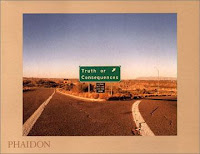With barely a whimper, guaranteed appointments went away. Gone. Permanently. Over and out. While holding clergy folk accountable to be effective in their work is the reasoning, (and that's not a bad thing) I think there are some unintended consequences that need to be considered.
I think the removal of guaranteed appointments is a game changer for all of those who are called to ministry as a 2nd career pastor. Unless one has the financial resources to afford the Masters of Divinity why do it? With the change there seems to be little difference between elders orders and licensed local pastors.
This is what I hear the church saying to those of us who are over 35 and called to serve as a pastor:
* we need 2000 more young clergy asap, so we are going to invest a lot of money in seminary educations, but only for those who are under the age of 35.
* the times have changed and we do not think guaranteed appointments are necessary any more
I am curious about the implications this will have on our seminaries, let alone the work of District Committees on Ordained Ministry, who has oversight of all licensed local pastors in their district as well. While we're at it, how will this affect the work of the Boards of Ordained Ministry?
It seems to me that over time this move will cause another round of restructuring as more oversight will be needed as the ranks of ordained elders decreases even faster than is being projected with this change. (I pray that I am wrong here, but who knows?)
I did not become a pastor to get rich, I am a pastor because I have been called by God to use the gifts that I have to the service of the church. These gifts were honed by nearly 20 years in the world. You see, I was 41 when I had a call to ministry. A conversation with my DS (now Bishop Deb Kiesey) convinced me to go to seminary instead of becoming a licensed local pastor, because only then would I have a guarantee of an appointment. To go to seminary I went heavily into debt. I don't regret my seminary education, in fact, I would not be the pastor I am today without my seminary education! However, the carrot on the stick was the promise of a job if I would make the investment of a seminary education.
There are many more questions than answers right now and I look forward to hearing how this move will be interpreted by my Annual Conference. In the meanwhile, I continue to pray for those who feel harmed by this move. May we continue to serve prophetically, with humility and faithfulness.
in Christ, together,
Deborah
This is what I hear the church saying to those of us who are over 35 and called to serve as a pastor:
* we need 2000 more young clergy asap, so we are going to invest a lot of money in seminary educations, but only for those who are under the age of 35.
* the times have changed and we do not think guaranteed appointments are necessary any more
I am curious about the implications this will have on our seminaries, let alone the work of District Committees on Ordained Ministry, who has oversight of all licensed local pastors in their district as well. While we're at it, how will this affect the work of the Boards of Ordained Ministry?
It seems to me that over time this move will cause another round of restructuring as more oversight will be needed as the ranks of ordained elders decreases even faster than is being projected with this change. (I pray that I am wrong here, but who knows?)
I did not become a pastor to get rich, I am a pastor because I have been called by God to use the gifts that I have to the service of the church. These gifts were honed by nearly 20 years in the world. You see, I was 41 when I had a call to ministry. A conversation with my DS (now Bishop Deb Kiesey) convinced me to go to seminary instead of becoming a licensed local pastor, because only then would I have a guarantee of an appointment. To go to seminary I went heavily into debt. I don't regret my seminary education, in fact, I would not be the pastor I am today without my seminary education! However, the carrot on the stick was the promise of a job if I would make the investment of a seminary education.
There are many more questions than answers right now and I look forward to hearing how this move will be interpreted by my Annual Conference. In the meanwhile, I continue to pray for those who feel harmed by this move. May we continue to serve prophetically, with humility and faithfulness.
in Christ, together,
Deborah

No comments:
Post a Comment